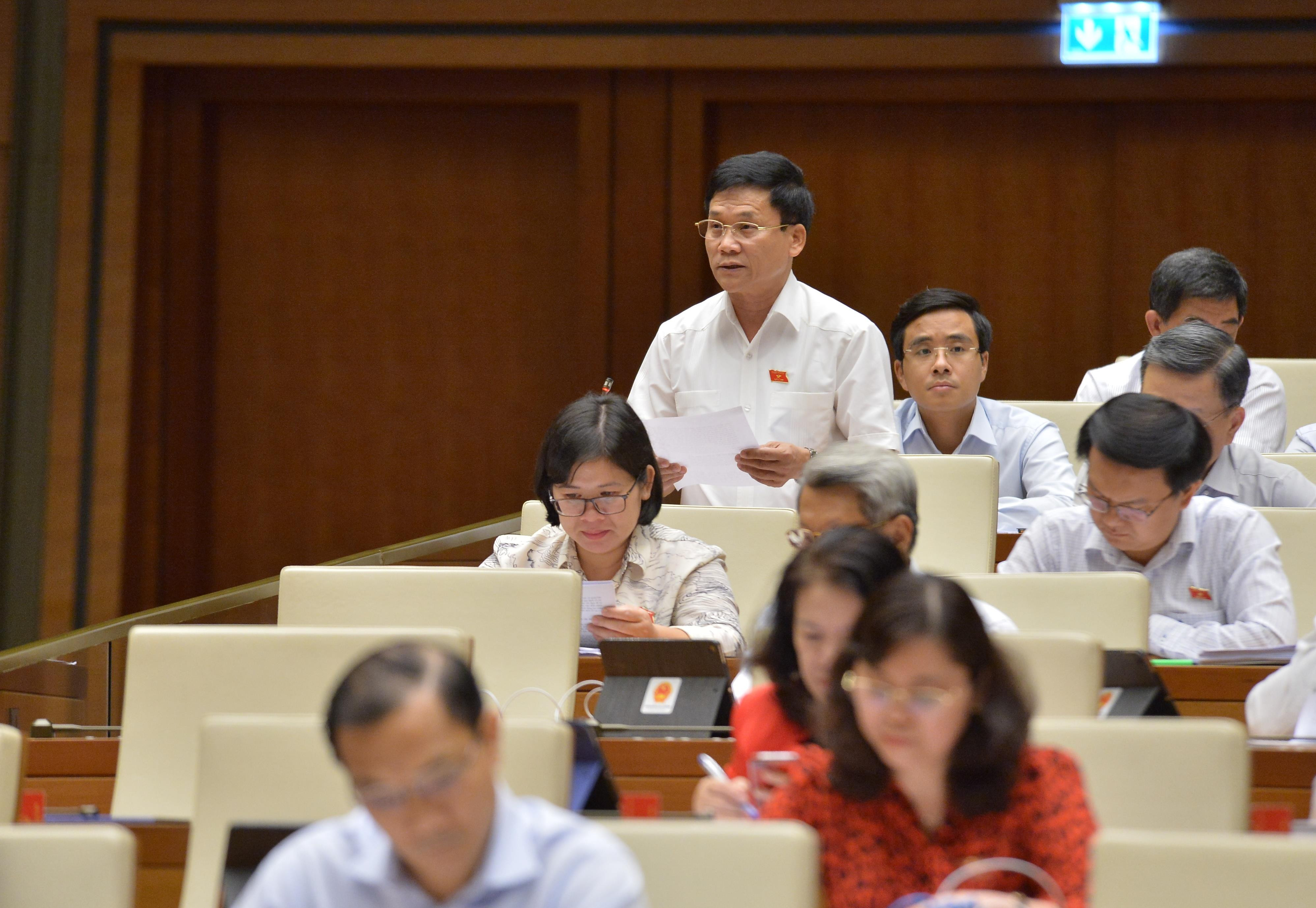Deputy Head of the National Assembly Delegation of Nghe An: Need to add the time for people sentenced to death to wait for execution
(Baonghean.vn) - Regarding the execution of the death penalty, delegates proposed to add the time for those sentenced to death to wait for execution. Because, in reality, many victims of the death penalty are currently detained for too long because they have to wait for the President's decision to accept or not accept the amnesty application.
 |
| Delegate Tran Van Mao speaks at the parliament. Photo: Thanh Loan |
Giving his opinion on the draft Law on Execution of Criminal Sentences, delegate Tran Van Mao, National Assembly delegate of Nghe An province, agreed with the provision in Article 33 of the draft law on the content that "prisons can coordinate with businesses, individuals or organizations to provide labor for prisoners both inside and outside of prisons".
According to the delegate, Article 33 ensures labor rights and obligations according to the 2013 Constitution; in accordance with international treaties on human rights, including labor rights; in accordance with the Labor Code; the Penal Code and other relevant laws. It demonstrates a view of innovation in organizing prisoner rehabilitation in prisons; creates conditions for prisoners to participate in labor in accordance with actual conditions and the capacity of detention facilities. In addition, it ensures additional income; reduces the burden of state budget costs for prisoner rehabilitation, helps prisoners integrate, improve, serve their sentences well and return to their families soon.
However, delegate Tran Van Mao expressed concerns about the feasibility or the potential for instability in the management of prisoners serving prison sentences. Prisoners serving prison sentences ensure that the purpose of punishment (educating criminals) is implemented in practice. For prisoners, education is carried out through many forms, including organizing labor for prisoners. Thus, prisoner labor is an educational measure and not aimed at creating material to serve the prisoners' lives.
Second, regarding the work of ensuring security and maintaining order: A difficulty and also a major problem that has persisted in the execution of prison sentences in detention facilities today is the situation of prisoners violating prison discipline, bringing prohibited items into the detention facility, fighting and escaping from detention.
The Government's annual report on the execution of sentences to the National Assembly shows that every year the State allocates funds to equip technical equipment to serve the management of prisoner detention, but the situation of prisoners bringing prohibited items into prisons over the years has decreased but is still complicated. Thus, when organizing prisoners to work outside the prison area, the issue of ensuring security and order, preventing prisoners from bringing prohibited items (even drugs, mobile phones, etc.) is complicated. If the State allocates funds to equip machinery to serve security control at production facilities associated with prisons for prisoners to work, it will be very difficult to do because it will increase investment costs compared to the efficiency obtained.
Regarding the execution of the death penalty, the delegate proposed to supplement the time for those sentenced to death to wait for execution. Because, in reality, many victims of the death penalty are currently detained for too long because they have to wait for the President's decision to accept or not accept the clemency application. According to the explanatory report of the National Assembly Standing Committee, the problem in the execution of the death penalty is due to the fact that the organization of the execution is not accurate and satisfactory. Because the time for consideration, decision on appeal, retrial, review, appeal, and protest has been removed from the Law on the Execution of Criminal Judgments as stipulated in Article 367, but the implementation is too long and prolonged because there is currently no law stipulating the time limit for considering the President's clemency application.


